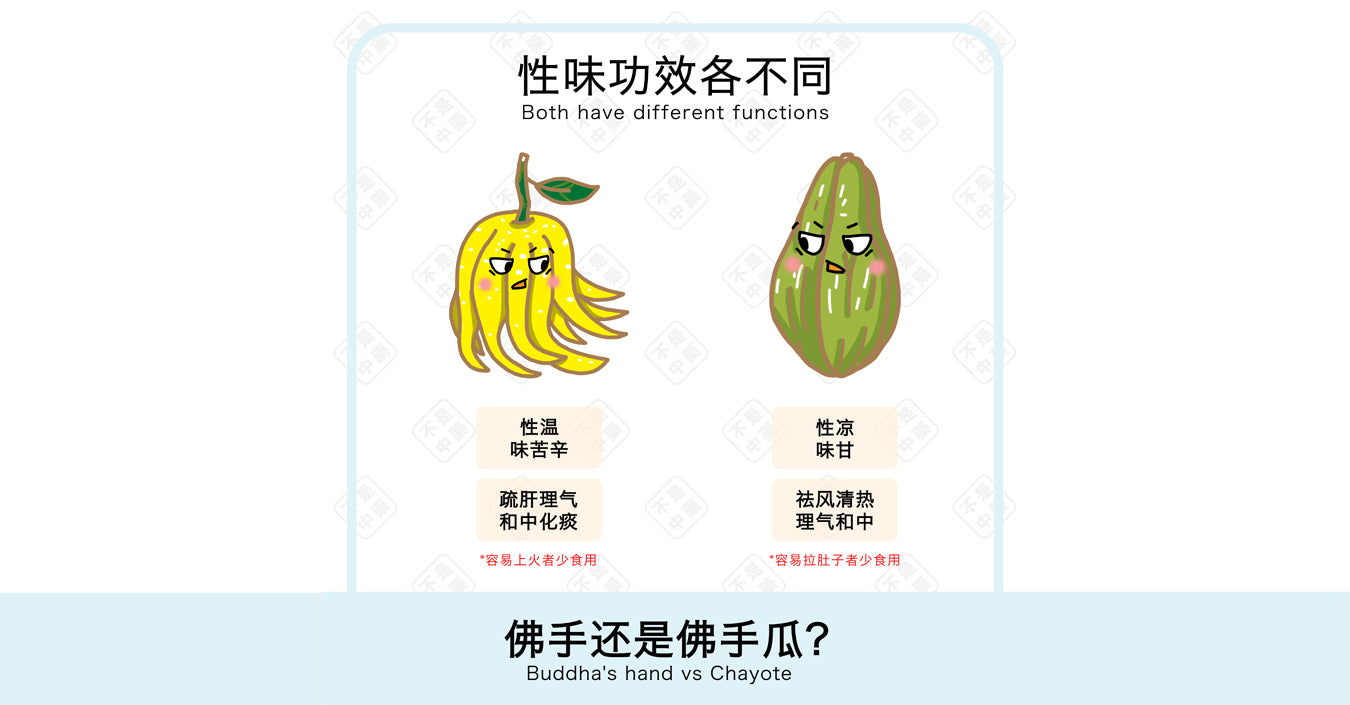Your Cart is Empty
🚛 FREE SHIPPING for order RM 120 & above
🚛 FREE SHIPPING for order RM 120 & above
🚛 FREE SHIPPING for order RM 120 & above
【不是中藥 itsherbs.com】Body Types
[不是中藥 itsherbs.com] Health Tips
【不是中藥 itsherbs.com】Media Reports • Announcement
【不是中藥 itsherbs.com】Body Types
8 major constitutions of traditional Chinese medicine
[不是中藥 itsherbs.com] Health Tips
Chinese Medicine // Wellness // Knowledge
【不是中藥 itsherbs.com】Media Reports • Announcement
Media Coverage • Announcements
2 min read
The difference between bergamot, bergamot and chayote ❓
✅ Buddha's Hand
Buddha's hand, also known as Buddha's hand citron, is dried in the sun or shade for medicinal use. It is warm in nature, with a spicy and bitter taste, and belongs to the liver, spleen, and stomach meridians. It has the effects of strengthening the spleen and stomach, regulating qi and relieving pain, and soothing the liver to relieve depression. In addition, Buddha's hand also has certain expectorant effects, can counteract histamine-induced bronchial contraction, and has some therapeutic effect on cold-type cough. Buddha's hand is warm in nature, so those with yin deficiency and excessive fire or internal excess fire, who often experience internal heat, should consume it sparingly.
✅ Chayote
Chayote is cool in nature and sweet in taste, associated with the lung, stomach, and spleen meridians. It has the effects of dispelling wind and clearing heat, strengthening the spleen and stimulating the appetite, regulating qi and harmonizing the middle burner. It is mainly used to treat wind-heat invading the lungs, headaches, sore throat with redness and swelling, heat-type cough, chest tightness and bloating, vomiting, and other symptoms. Chayote is crisp and juicy, delicious and palatable, with high nutritional value. It can be used as a vegetable or eaten raw as a fruit, and regular consumption helps enhance the body's disease resistance. There are many ways to eat it, such as cold dishes, soups, hot pot, and dumpling fillings. Since chayote is a cool-natured food, people with spleen and stomach deficiency cold, frequent diarrhea, and some cold syndrome patients should not eat it.
